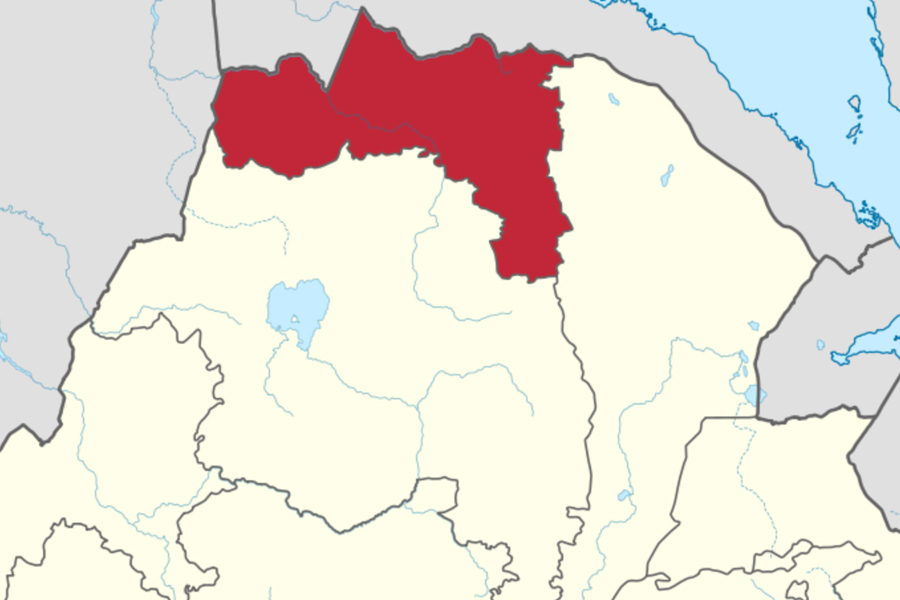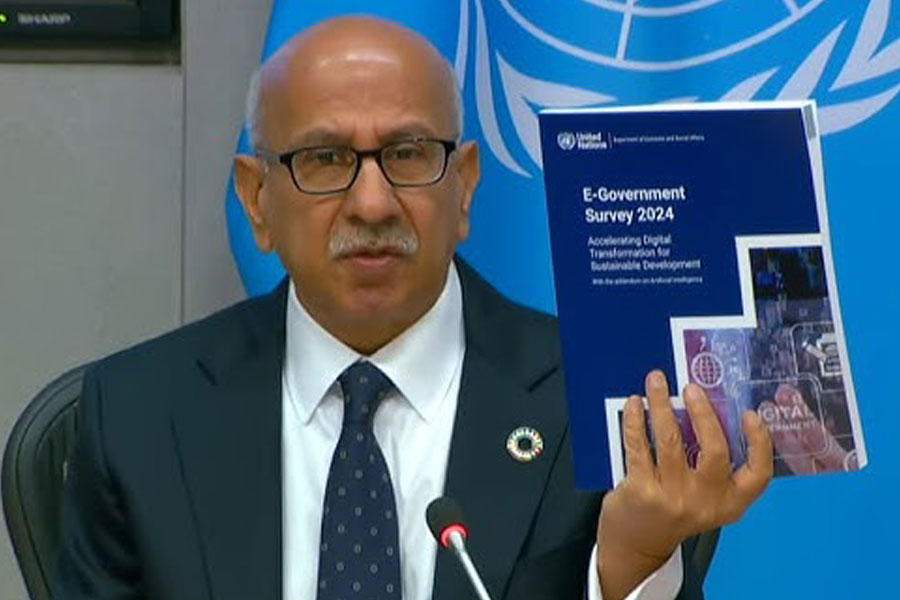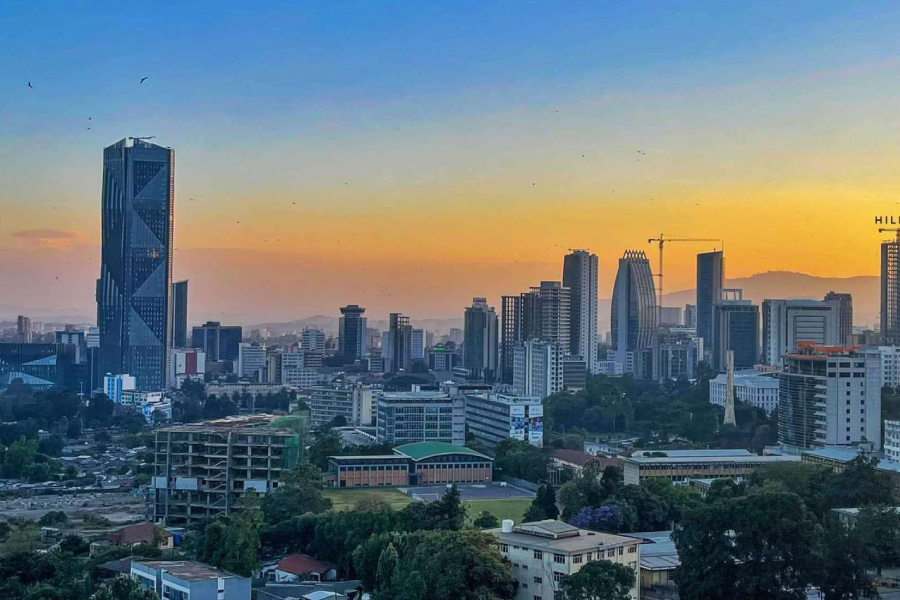
Editorial | Jan 18,2019
Nov 18 , 2023
By Yonas Berhane , Aida Awel
Ethiopia is a significant country in labour migration, serving as a country of origin, transit, and destination. This dynamic creates a range of challenges and opportunities in the region. According to the 2021 labour force and migration survey, approximately 17.1pc of Ethiopia’s population (excluding the Tigray region) comprises migrants, with a higher prevalence among females (19.1pc) compared to males (15.1pc).
According to a report by the International Labour Organization (ILO), the push factors propelling Ethiopians towards foreign shores are numerous, with unemployment, poverty, and political instability cited as primary drivers. These factors fuel aspirations for better prospects, particularly in the Middle East.
Ethiopia has also emerged as a haven for people escaping conflict, ranking Africa’s third-largest host, a shelter for over 942,000 refugees and asylum-seekers, predominantly from the Intergovernmental Authority on Development (IGAD) region. Its position as a transit hub is equally significant, with many migrants traversing through Ethiopia on their way to Europe, often through Sudan and Libya. This journey is frequently financed through informal work within Ethiopia itself.
Prime Minister Abiy Ahmed (PhD) underscored Ethiopia’s status as a major labour-sending country in his recent parliamentary address, revealing the demands from various countries to employ up to two million Ethiopian nationals. This demand was epitomised by the Kingdom of Saudi Arabia’s decision in early 2023 to resume hiring Ethiopian domestic workers after a three-year pause.
This migration landscape, however, is not without its challenges.
A significant portion of Ethiopian migrants to the Gulf countries and South Africa embark on irregular migration routes. The ILO’s 2018 Baseline survey for the “Improved Labour Migration Governance to Protect Migrant Workers & Combat Irregular Migration in Ethiopia” revealed a widespread absence of proper documentation among Ethiopian workers abroad. This irregularity exposes them to risks such as human trafficking, smuggling, abuse, exploitation, and forced labour.
These migrants, often lured by local intermediaries, returnees, relatives, or friends with false promises of financial gain, remain uninformed about the realities awaiting them in their destination countries. Hence, they face a plethora of adversities, including excessive work hours without rest, passport confiscation, restricted movement, wage withholding or non-payment, and various forms of abuse.
Regular migrants, despite their legal status, are also not immune to similar adversities. The lack of skills or qualifications recognised by destination countries often relegates them to underemployment, entrenching them in low-paying, low-skilled jobs. This circumstance not only limits their economic prospects, but also leaves them vulnerable to exploitation.
In contrast to these challenges, well-governed labour migration has advantages.
For the country of origin, remittances support the economy, reduce unemployment, and enhance labour market flexibility. The destination countries benefit from filling labour and skill gaps, stimulating economic growth, and enriching cultural diversity. For migrant workers and their families, improved socio-economic conditions and social inclusion are tangible benefits. A well-governed migration advances stronger diplomatic relations, facilitating cooperation on international issues.
The Ethiopian government has launched a number of measures to address the diverse issues associated with migration. These include enacting an overseas employment proclamation, stronger regulation of recruitment agencies and modernising the Labour Market Information System (LMIS). Ethiopia has also pursued Bilateral Labour Agreements (BLAs) and Memorandums of Understanding (MoUs) with countries such as Saudi Arabia, the UAE, Jordan, Lebanon, and Qatar to expand employment opportunities and protect Ethiopian migrant workers.
The International Labour Organization (ILO) plays a crucial role in assisting Ethiopia in its endeavours. Its contributions encompass strengthening the regional framework for migrant worker protection, assisting in developing the overseas employment proclamation, and enhancing the capacity of various stakeholders in labour migration governance. The ILO’s initiatives have significantly improved the country's labour migration governance and data management.
Despite these efforts, however, the complexity of migration issues demands sustainable and comprehensive strategies. The irregular migration patterns of Ethiopians highlight the need for effective policy interventions.
Ethiopia has not ratified any of the Migration-related conventions; hence, it is encouraged for Ethiopia to ratify and domesticate the ILO Conventions 97, 143, and 189, as well as the 1990 International Convention on the Protection of the Rights of All Migrant Workers and Members of Their Families.
Strengthening bilateral labour agreements and MoUs to align with international labour standards is vital for protecting Ethiopian migrant workers. Also, skills partnerships with destination countries significantly enhance the employability and protection of Ethiopian migrants, ensuring their success and well-being abroad.
PUBLISHED ON
Nov 18,2023 [ VOL
24 , NO
1229]

Editorial | Jan 18,2019

Viewpoints | Dec 10,2018

Fortune News | Nov 21,2020

Fortune News | Sep 28,2024

Radar | Oct 31,2020

Radar |

Fortune News | Aug 04,2024

Commentaries | Aug 21,2021

Commentaries | Jul 30,2022

Sponsored Contents | Mar 03,2022

Photo Gallery | 178415 Views | May 06,2019

Photo Gallery | 168616 Views | Apr 26,2019

Photo Gallery | 159416 Views | Oct 06,2021

My Opinion | 137072 Views | Aug 14,2021
Commentaries | Oct 25,2025

Dec 22 , 2024 . By TIZITA SHEWAFERAW
Charged with transforming colossal state-owned enterprises into modern and competitiv...

Aug 18 , 2024 . By AKSAH ITALO
Although predictable Yonas Zerihun's job in the ride-hailing service is not immune to...

Jul 28 , 2024 . By TIZITA SHEWAFERAW
Unhabitual, perhaps too many, Samuel Gebreyohannes, 38, used to occasionally enjoy a couple of beers at breakfast. However, he recently swit...

Jul 13 , 2024 . By AKSAH ITALO
Investors who rely on tractors, trucks, and field vehicles for commuting, transporting commodities, and f...

Oct 25 , 2025
The regulatory machinery is on overdrive. In only two years, no fewer than 35 new pro...

Oct 18 , 2025
The political establishment, notably the ruling party and its top brass, has become p...

Oct 11 , 2025
Ladislas Farago, a roving Associated Press (AP) correspondent, arrived in Ethiopia in...

Oct 4 , 2025
Eyob Tekalegn (PhD) had been in the Governor's chair for only weeks when, on Septembe...

Oct 25 , 2025 . By YITBAREK GETACHEW
Officials of the Addis Abeba's Education Bureau have embarked on an ambitious experim...

Oct 26 , 2025 . By YITBAREK GETACHEW
The federal government is making a landmark shift in its investment incentive regime...

Oct 29 , 2025 . By NAHOM AYELE
The National Bank of Ethiopia (NBE) is preparing to issue a directive that will funda...

Oct 26 , 2025 . By SURAFEL MULUGETA
A community of booksellers shadowing the Ethiopian National Theatre has been jolted b...